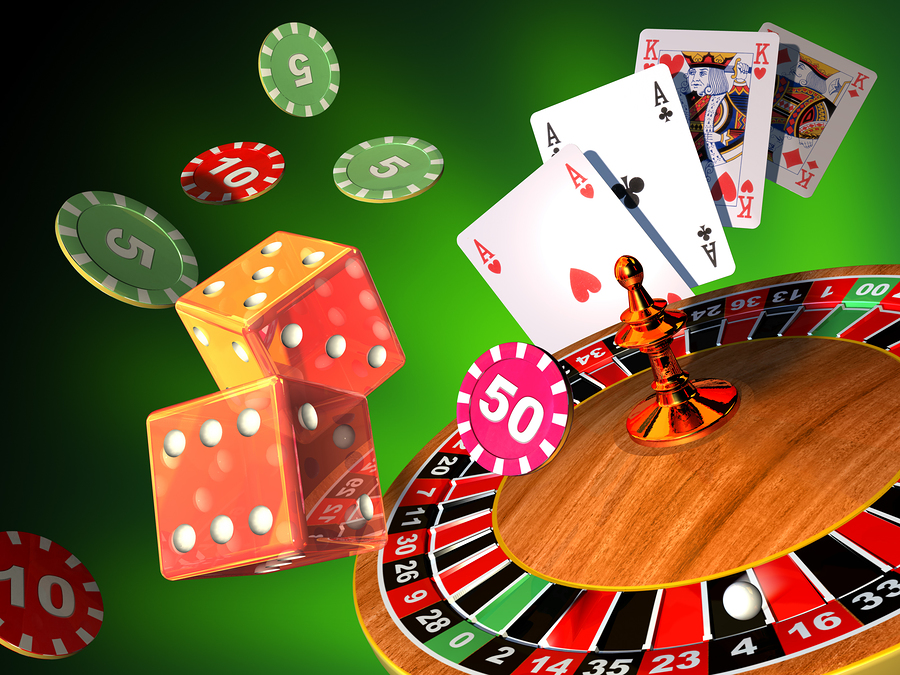
Casino games have captivated players for centuries, evolving from simple pastimes to complex experiences that combine luck, strategy, and amusement. From the historical origins of gambling in societies including Mesopotamia and Rome to the glitzy corridors of contemporary casinos, the journey of these games shows much about human nature and our interaction with risk. As societies have intertwined and innovation has progressed, casino games have changed, mirroring shifts in society and innovations in gameplay. 78Win01
The earliest forms of gambling likely featured simple games involving dice and wagering on the results of athletic contests. Through the years, these primitive activities grew into more structured games like playing card games, the roulette wheel, and the variety of one-armed bandits that line casino floors today. Each era brought its unique rules, aesthetics, and cultural importance. At present, casino games persist in evolving with the rise of internet-based platforms, enabling players from everywhere to participate in a common experience, further fusing the traditional with the modern era.
Initial Origins of Gambling Activities
Casino games have roots that stretch back to historical societies, where gambling was profoundly entrenched in cultural practices and cultural customs. The initial known instances of gambling emerged in Mesopotamia around 3000 BC, involving primitive dice activities made from bone material. These early games laid the foundation for more complex gambling games, reflecting human beings’ instinctive urge to seek wealth and amusement through chance.
As civilizations evolved, so did their betting pursuits. In early China, around 2300 BC, tiles were unearthed that were similar to primitive basic forms of a lottery activity. More organized instances of gambling arose in the Roman Empire, where activities of luck were a popular pastime, often occurring in community events. The Romans developed various betting activities, which entailed dice and table games, highlighting the pervasive nature of gambling across different economic classes.
With the movement of years, these primitive activities shaped the progress of contemporary casino activities. In the Middle Ages, playing card activities became prevalent in Europe, paving the way for the professional gambling venues we know today. The shift from casual betting to organized gaming in taverns and personal houses marked a significant transformation in how people engaged with activities of chance, leading to the subsequent establishment of casinos as dedicated venues for betting.
The Emergence of Contemporary Casino Gaming
The final 20th century marked a pivotal shift in the realm of gaming, propelled by technological progress and shifts in cultural attitudes towards betting. The emergence of computers and the World Wide Web transformed the way players engaged with their favorite casino games. Online casinos emerged, allowing players to enjoy timeless table games like poker and blackjack from the convenience of their own homes. This emerging online environment not only broadened availability to gambling options but also drew in a fresh audience who found the ease and diversity appealing. https://78win.tv/
As digital gambling gained traction, so did advancements in casino tech. The creation of sophisticated programs and graphics converted traditional casino games into immersive experiences. Players could now connect with live live dealers through live feeds, bringing the vibe of physical casinos directly into their homes. This blending of live gaming with digital interfaces created a unique hybrid experience that enhanced the community element of gambling, allowing it possible for people to connect and challenge with others around the planet.
Additionally, the rise of mobile gaming dramatically changed the gambling environment. With the widespread use of mobile phones and touch devices, players can play their preferred gaming options everywhere, whenever. Mobile apps offer a extensive range of options customized for touchscreens, catering to the busy daily life of modern users. This accessibility has resulted in rising involvement in gambling, fostering the rapid expansion of the gaming industry. As a result, the prospects of gambling continues to progress, adapting to new technologies and changing consumer preferences.
The Impact of Technology on Casino Games
The evolution of technology has greatly changed casino games, enhancing the overall experience for players for players around the world. With the introduction of the internet, online casinos were created, allowing players to enjoy their favorite games from the comfort of their homes. This change not only made casino games more available but also expanded the variety of games available, as online platforms could host numerous variations of traditional games without the limitations of physical casinos.
Mobile technology further revolutionized the casino gaming landscape. With the proliferation, players can to play casino games whenever and wherever they want. This flexibility has resulted in the development of dedicated mobile applications and optimized websites that provide seamless gaming experiences. Additionally, innovations such as live dealer games have brought the genuine feel of a casino into players’ living rooms, bridging the gap between physical and online gaming.
Moreover, advancements in artificial intelligence and VR are leading to the next generation of casino games. AI improves game design and player interaction, creating tailored experiences based on user behavior and preferences. Meanwhile, virtual reality provides immersive environments where players can interact in a virtual casino environment, making the gaming experience more exciting and realistic. As technology continues to evolve, the future of casino games looks promising, filled with limitless opportunities for advancements and entertainment.